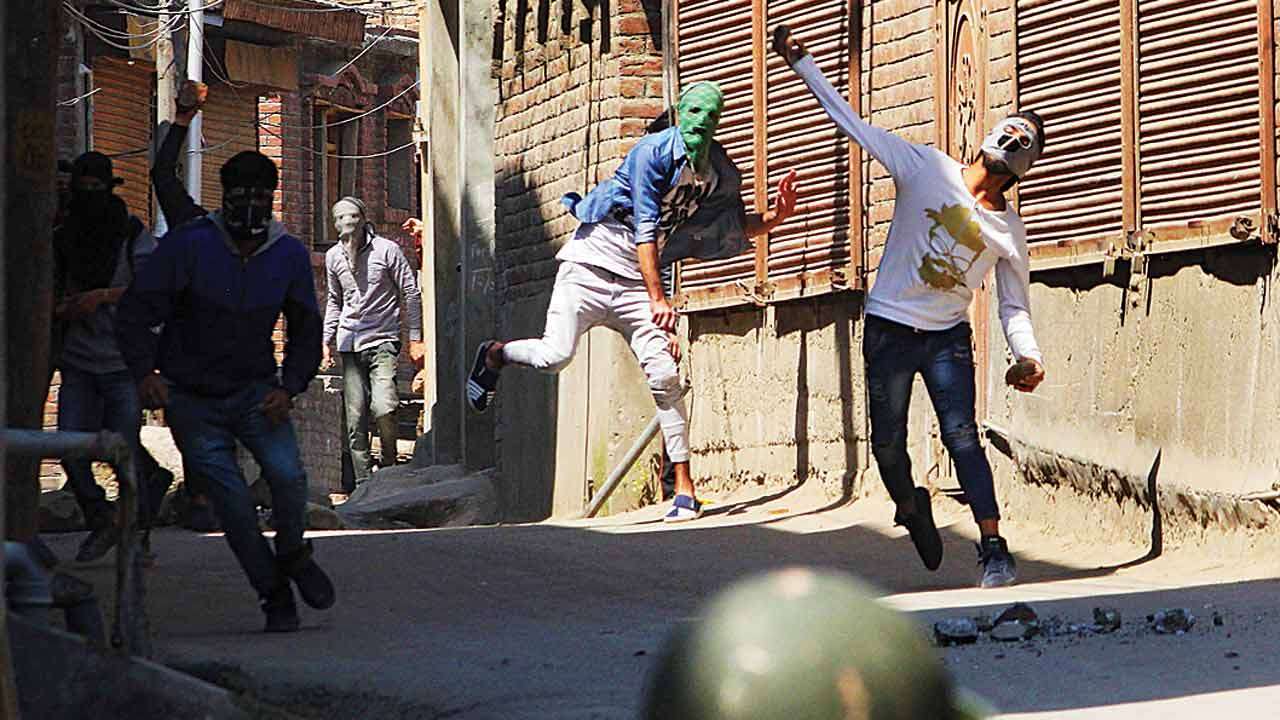
“Sir I want to be with the boys,” said a 24-year- old officer, declining to go home on sick leave at the Base Hospital at Srinagar. I was Corps Commander in Kashmir and had gone to meet some of our soldiers and officers wounded in operations there.
This young officer, Capt Pawan Kumar, had his jaw smashed by a stone pelting crowd, as he was returning with his team after a successful encounter with terrorists. Bemused, I looked at this 24-year-old, who wanted to return to his ‘boys’, each of whom were trained Special Forces soldiers, all older than him and more experienced. This is the indomitable spirit of the young officers of the Indian Army, who always lead from the front.
Within a week, I saluted his mortal remains in a casket. It was overwhelming! In the biggest hostage situation during my tenure as Corps Commander in Kashmir, terrorists had occupied the Skill Development Centre, a six-storeyed building in Pampore, on the outskirts of Srinagar.
These brave hearts rescued over 60 hostages safely, all Kashmiri men and women. But they paid a heavy price for it, with their own lives. Captain Pawan Kumar, Capt Tushar Mahajan & L/Nk Om Prakash, all commandos, were martyred.
During the operation, it did not matter that some of the locals they were rescuing were those who hate the army, with many pelting stones at them. They just did their duty, saved the lives of Kashmiri hostages at the expense of their own. The only thing that mattered was the honour of the country and the duty at hand.
Capt Pawan Kumar is not the only one. I’ve met several other victims of this intifada style of ‘unarmed’ protest, stone pelting. Some of these fighters have narrowly missed losing an eye, some have had their jaws smashed, and suffered many injuries. So unarmed that these stone-pelters are, they are certainly not non-violent. In fact, they are viciously violent.
Off late, there is another trend. We have had soldiers belonging to Kashmir who have been kidnapped and killed by terrorists. Lt Ummer Fayaz, who went home in Shopian to attend a wedding in the family, a JAK-LI jawan Mukhtiyar, who went to attend his son’s funeral, or Md Yasin Itoo, who simply went home on leave, were all killed by terrorists.
Besides, hundreds of soldiers have lost their lives while fighting terrorists in these areas over the last three decades. Ever so often, soldiers and officers have been wounded, maimed or crippled.
While there is a raging debate on whether AFSPA is being too harsh and draconian, there is scarcely any concern about the human rights of soldiers.
While NGOs and several organisations like the NHRC vie to fight for the human right of terrorists, there’s no such institutional support for the army man, who goes to fight in the line of duty.
Just because he voluntarily signs up for an unlimited liability contract, doesn’t the soldier enjoy some legal rights as well?
Last month, two young women, barely out of their teens, Preeti Kedar Gokhale and Kajal Mishra, petitioned the Supreme Court to safeguard basic human rights of their soldier fathers.
The petitioners said they are “greatly disturbed by the incidents of unruly and disruptive mobs” pelting stones at soldiers and army convoys in Jammu and Kashmir and sought formulation of a policy to curb human rights violations of security force personnel who come under attack by mobs while performing their duty.
In August last year, over 300 army personnel approached the Supreme Court challenging registration of FIRs against them for operations in disturbed areas such as Manipur and Jammu and Kashmir, where the Armed Forces Special Powers Act is in force.
The apex court admitted their plea on the grounds that army personnel are being “persecuted” and proceeded against for performing duties in disturbed areas.
This problem needs to be nipped in the bud. The army personnel, in their petition, claimed that they “are now facing confusion and countering questions from the soldiers under their command, as to whether they are supposed to continue to engage the proxy war and insurgency with their military training, principles, standard operating procedures, operational realities, valour and courage or act and operate as per the yardsticks of peacetime operations, law and order issues and CrPC.”
It is a very pertinent question to ask. Should officers and soldiers have to knock the gates of justice individually to do what are their bonafide duties? Since the army, obviously, cannot take recourse to legal action, should the courts take suo moto notice of the issue or can the legal fraternity help?
The soldier risks his life for the nation and for the people. It is grossly unfair if some of them have to defend themselves in courts even after retirement, for some action that he may have allegedly committed while performing his duties, which needless to say, involved grave risk to his life and limb. In return, the least a soldier deserves is the support of the country that required of him to make sacrifices, and the countrymen he risked his life for. That is not asking for too much, is it?
Author is a former Corps Commander in Srinagar, who controlled the huge unrest following the elimination of terrorist leader Burhan Wani in 2016